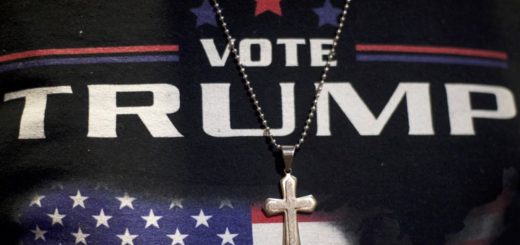How to Save Money without Giving Up Avocados

By J.D. ECARMA
We millennials get a lot of unsolicited advice.
The most annoying genre of lifesplaining directed at millennials might be the “you can save a bunch of money if you just do X.” Stop buying avocado toast and you can save enough for a house! Cut out coffee and you can totally pay off those student loans!
I want to tell the people who write these ridiculous articles that a $14 meal at Slipstream isn’t enough to pay for a house and that I haven’t been a Starbucks regular since early 2013. I’ve spent my 20s (so far) feeling deprived, living paycheck to paycheck and still never getting ahead.
So no, I’m not here to tell you that saving money and getting into a better financial position is easy, but it’s worth it.
For some background: I live in a ridiculously expensive area (Washington, D.C./Northern Virginia), and I don’t have a future here, but I also didn’t have enough money to be able to move. I’ve moved before without planning much ahead of time or having money to spare, and it’s a financial hardship. I decided it would be different this time. I took a hard look at my priorities to cut my spending this year, and I’ve saved enough money to buy a (cheap) car and move to a better area when I decide the time is right.
Here are some of the ways you can disrupt your lifestyle in a way that will genuinely help you save money. Giving up the occasional slice of avocado toast, not required.

Get practical.
Carve out time to take a good look at your credit card bill; student loan payments; rent; and any other absolutely necessary expenditures to get a better idea of what money you have for discretionary spending. (I recommend drinking a glass of wine while doing this to make it a little more palatable.)
I was in the bad habit of thinking of this non-essential-spending money as “fun money” that could be used for shopping, eating out with friends, buying books and CDs, etc. Set a time frame of six months, a year, or whatever works for you to say, “I don’t have ‘fun money’ right now.”
Go on a “spending freeze.”
After adding up what you spend on rent and other absolute essentials, figure out where else your money goes. What are your true “essentials”? Decide that you’re only spending money on those, and cut yourself off from extra expenses.
These new guidelines will look different for everyone. For me, this change meant cutting back drastically on socializing. Eating at a restaurant, buying a movie ticket and even riding on the metro here are all things that can really take a bite out of your bank account.
You can also cut back on extra expenses without totally giving up things you enjoy. I kept my Netflix subscription (more on that later), and I swapped out my pricey skincare favorites to switch to The Ordinary’s insanely inexpensive but still effective line of products.
Pinpoint your problem spots.
Where are you spending way too much money without realizing it? Being a typical millennial, I realized I was blowing way too much money on Uber rides. I needed to quit cold turkey … even though getting from Point A to Point B in the D.C. metro area can be 1) difficult or 2) impossible without it. To go back to the point about socializing less, I simply had to say no to social events and volunteer opportunities if I couldn’t get there without taking an Uber.
I also recommend reviewing your small expenses each month to make sure you’re not spending a few dollars here and there unnecessarily. I realized I was spending too much for Netflix by subscribing in one of the higher tiers when I tend to watch on just one device, so I switched to the $7.99 basic option.
Find your luxury.
So yes, Netflix is an “essential” for me, and I didn’t cut it out because I believe we all need a bit of oblivion in our lives. Plus, nobody is saving $7.99 a month to magically save up enough to pay off credit card debt or buy a house (baby boomers, don’t @ me).

“Unbreakable Kimmy Schmidt” is an essential, y’all. Credit: Netflix
Find a few key things that will keep you from feeling deprived while not breaking the bank. I realized that eating out is pretty overrated, and I embraced cooking at home. I used to think it wasn’t worth it to cook thoughtful, multi-step meals for myself, so I stuck to the basics in the past (think Trader Joe’s quinoa-rice pasta with marinara sauce). But since I mostly gave up eating at restaurants this year, I let myself put more effort into selecting my groceries, planning meals and cooking for fun.
Maybe you won’t fall in love with cooking the way I did, but I highly recommend finding something that feels indulgent while not overly draining your funds. It will help you stick with your “spending freeze” mode longer and help you save more money in the long term.

Make the most of free resources.
My favorite thing this year was my library system’s wide variety of books available on Kindle. If you don’t have a library card, get one ASAP. Libraries! Are! Awesome! I rely on Kindle checkouts so I don’t have to pay for the metro ride to and from the library, but find whatever works best for you.
I also listened to a lot of podcasts. (If you haven’t yet, check out The Paradox Project’s own here.) We’re living in a golden age of podcasts, with basically every topic under the sun available to you for free.
Figure out what else is already open to you, and use local art galleries, museums and other landmarks as a way to catch up with a friend without spending money. I’m fortunate to live in an area with a lot of awesome resources that are free to the public. Visiting the Botanic Garden to see a corpse flower in full bloom was free, as was a trip to the Renwick Gallery to see the Frances Glassner Lee exhibit and the annual Christmas tree lighting at Tysons Corner mall.
Saving money is tough but rewarding. Find your own ways to save, and ignore anyone who tells you that giving up one of the best things in life (avocados) is somehow the only way to do it.




I love this! We have always had a “no spend” month (pick a month, any month). This year (as often in the past) it will be in January. We enjoy the bounty of all that Christmas and the New Year has brought, and just spend the month not buying anything but true essentials. It’s a great time to reset priorities, catch up on debt, and/or save for the coming year.